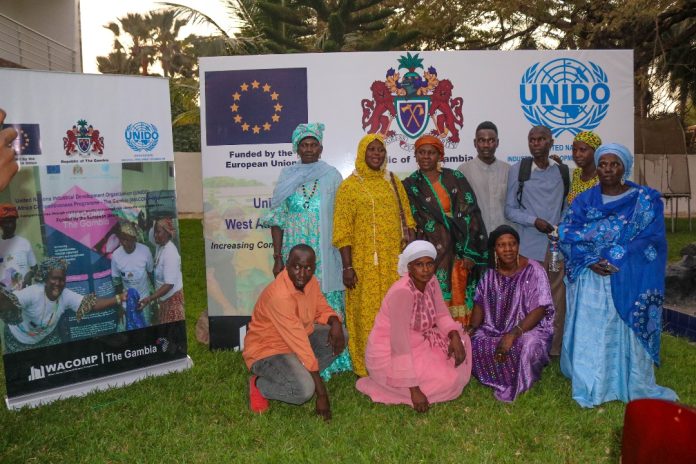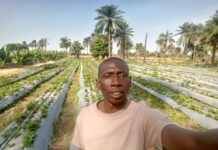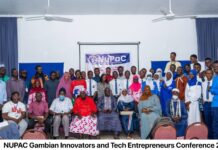By: Alieu Ceesay
Ntai Jarju, a vegetable gardener from the remote village of Kiang Nema, finds hope in her garden. Through her hard work, she pays her children’s school fees, feeds her family, and improves their livelihood. For her, vegetable gardening is more than a job—it’s a lifeline. Yet, like many rural gardeners, she faces numerous challenges, from limited market access to inadequate support systems.
“This initiative is very important,” she said, reflecting on the recently launched four-year marketing strategy by the United Nations Industrial Development Organization (UNIDO) and the West Africa Competitiveness Program (WACOMP) Gambia. “Gardening plays a crucial role in maintaining a healthy diet and improving livelihoods. With the right support, we can feed not just our families but others too and contribute to the country’s economic growth.”
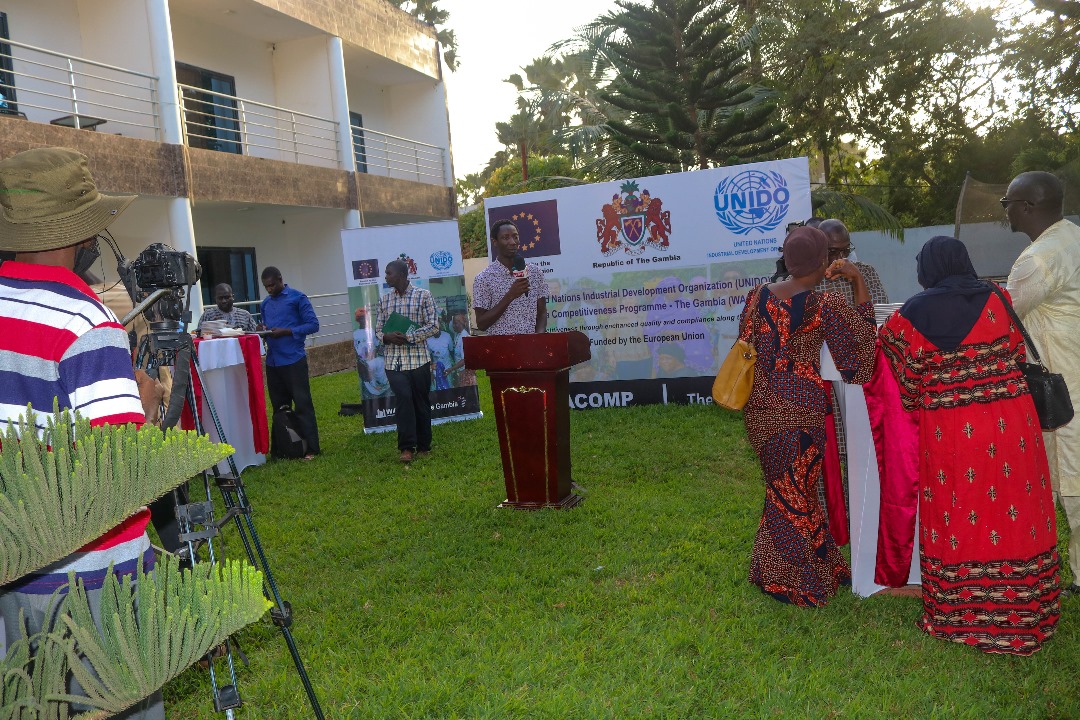
The business plans, which span from 2025 to 2029, aim to tackle household poverty, low family income, and malnutrition while boosting the health status of communities, particularly children. Women gardeners from the North Bank, Lower River, West Coast, and Central River Regions (North and South) are expected to benefit.
Ousman Manneh, the President of the National Marketing Federation, expressed optimism about the plan’s potential to address farmers’ longstanding challenges.
“I believe this is a great step,” he said. “This initiative will take us to new stages that will bring us more income. I hope everyone involved will work to make this plan a reality for us farmers.”
The program focuses on increasing competitiveness through improved quality and compliance along the onion value chain. It also aims to give gardeners opportunities to connect with investors and technical experts to achieve their aspirations.
Lamin Sawo, CEO of the Grassroots Business Initiative and UNIDO’s business plan development consultant, emphasized the strategy’s transformative potential.
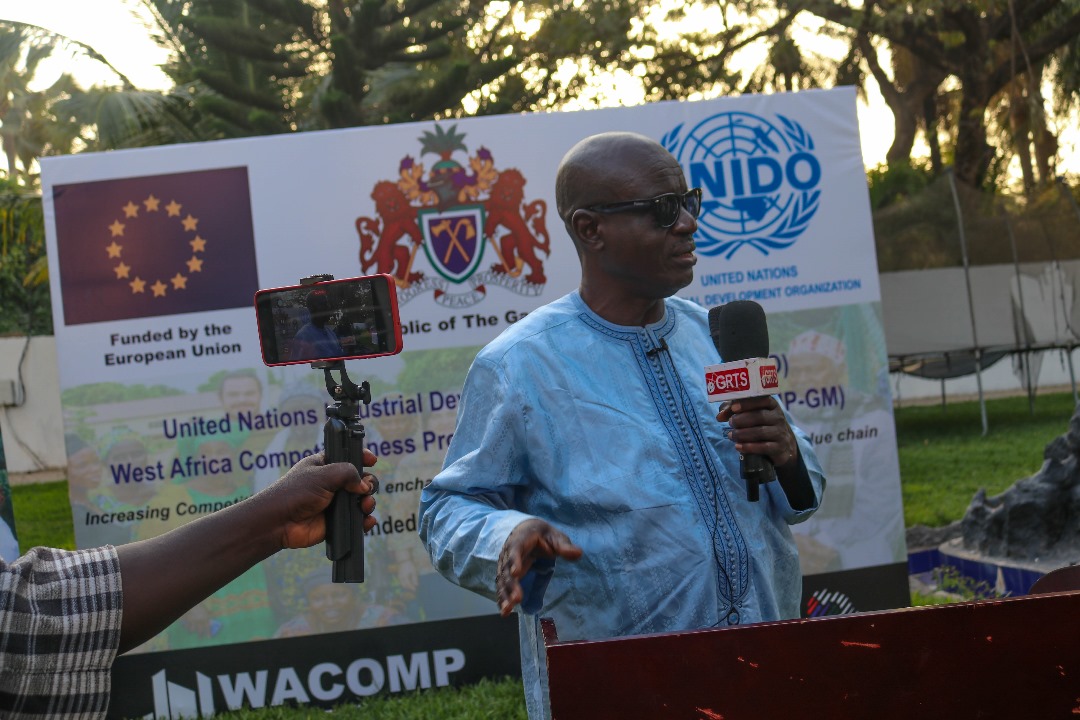
“This forum is supposed to create an environment where gardeners can engage with potential investors and technicians who can support them in implementing their aspirations,” Sawo explained.
The Plans will bring together horticulturists, processors, storage experts, and entrepreneurs to create a comprehensive garden-support network.
While gardeners like Jarju are hopeful, they also recognize the need for continued advocacy and government involvement. Jarju called on stakeholders to support women gardeners and highlighted the broader social benefits of vegetable gardening.
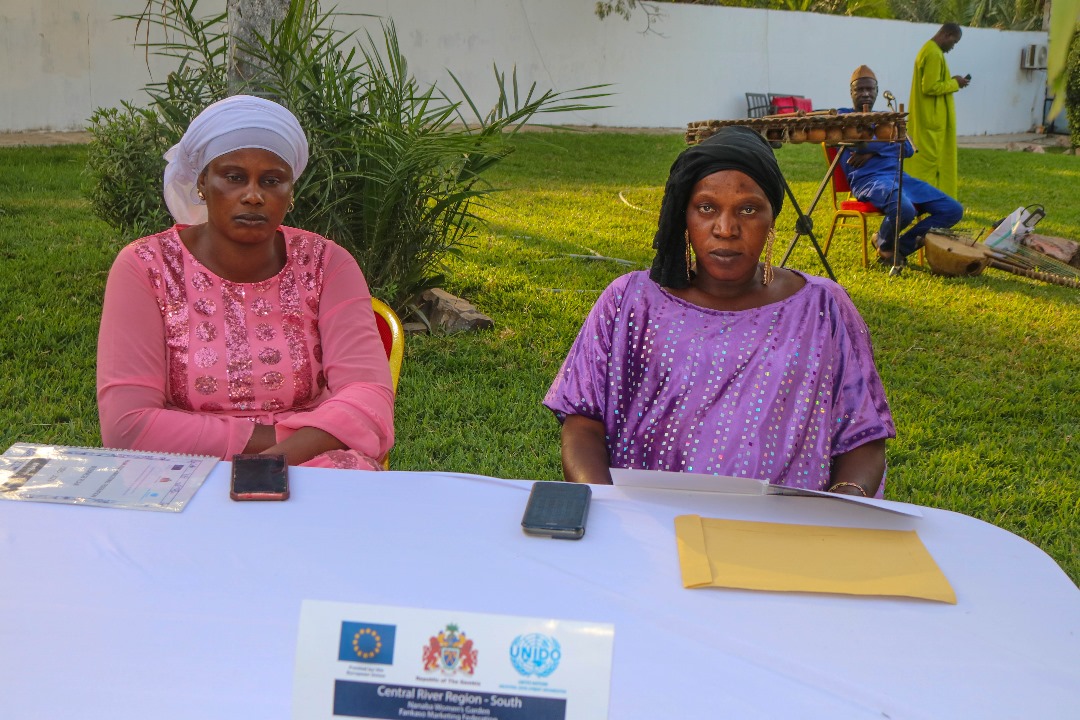
“With gardening, we can reduce our expenditure, feed our families, and even prevent irregular migration by providing young people with opportunities at home,” she said.
As UNIDO and WACOMP-Gambia roll out this ambitious plan, the hope is that rural women gardeners like Jarju and Manneh will improve their livelihoods and contribute to the nation’s economic growth and resilience.


